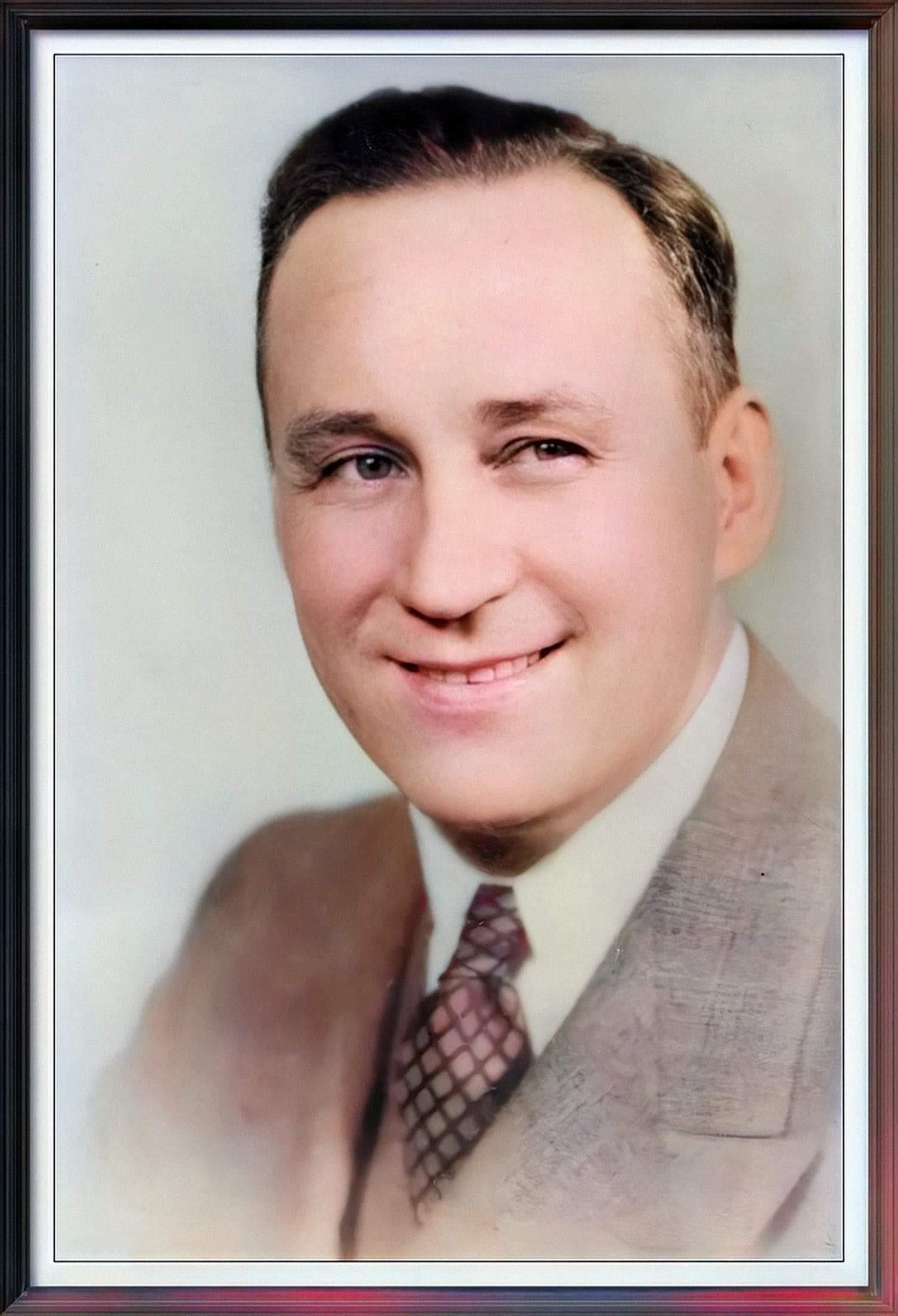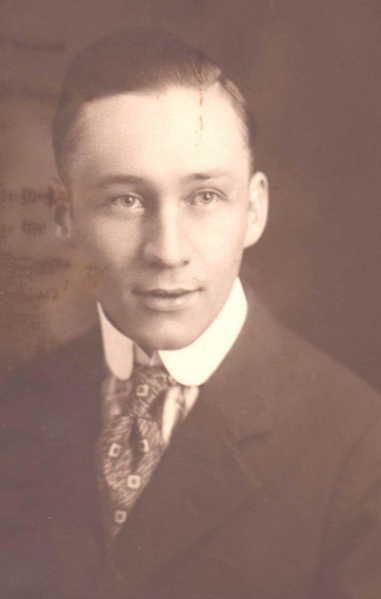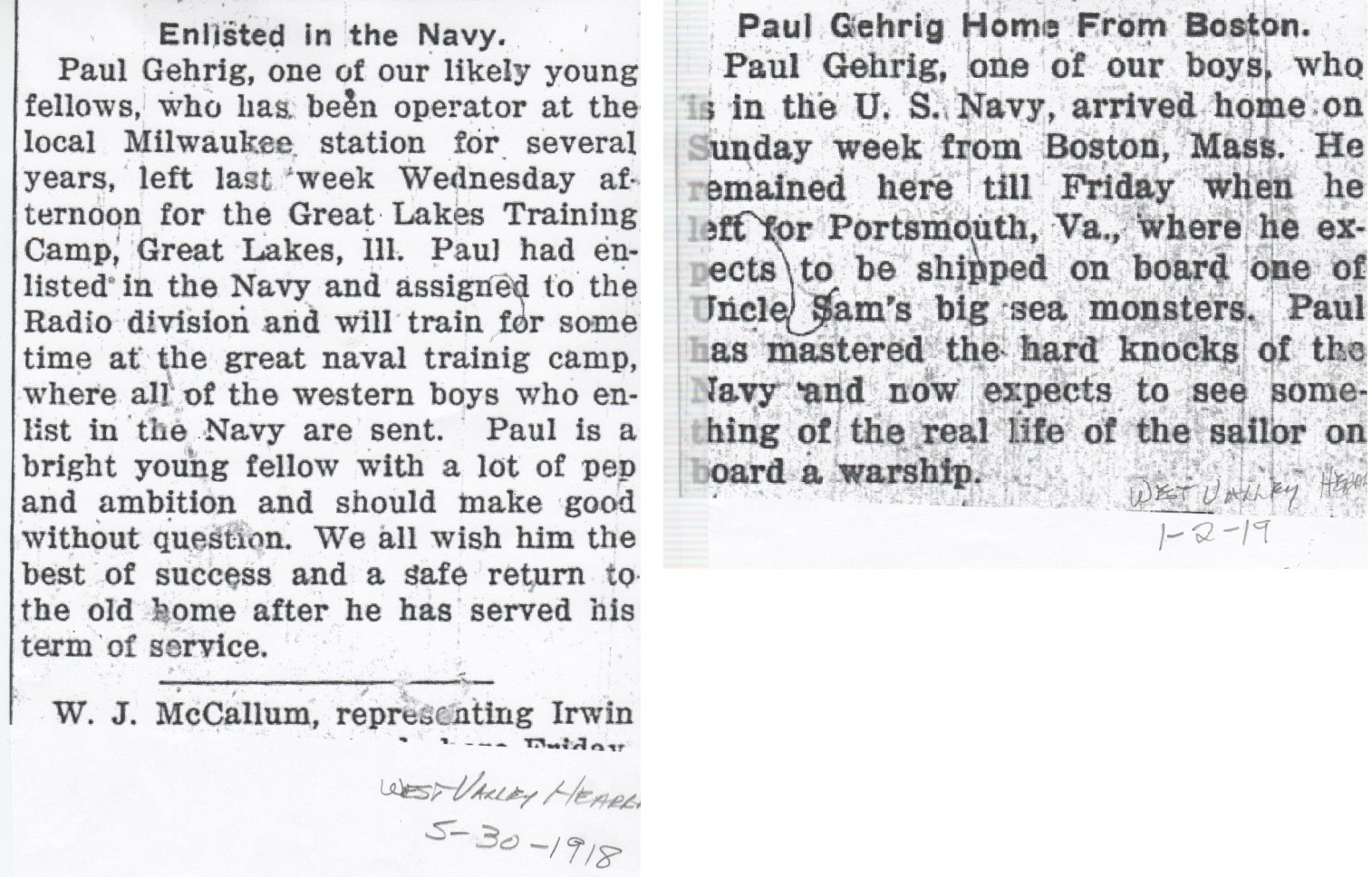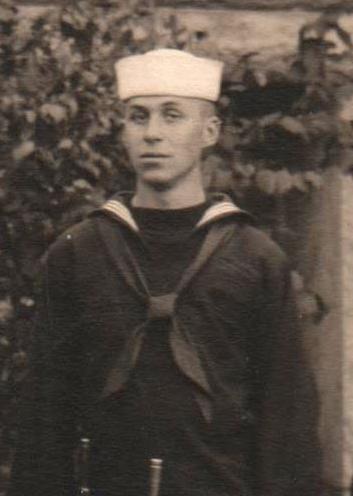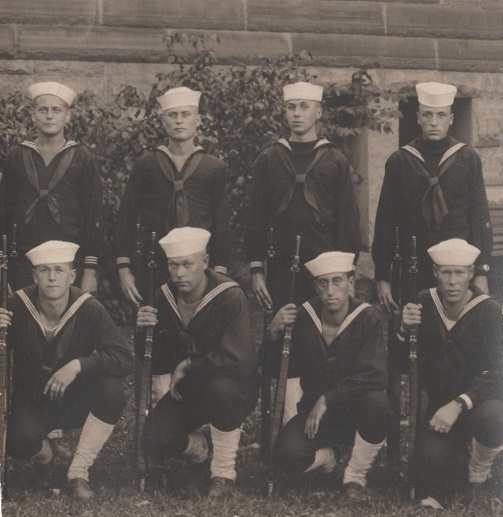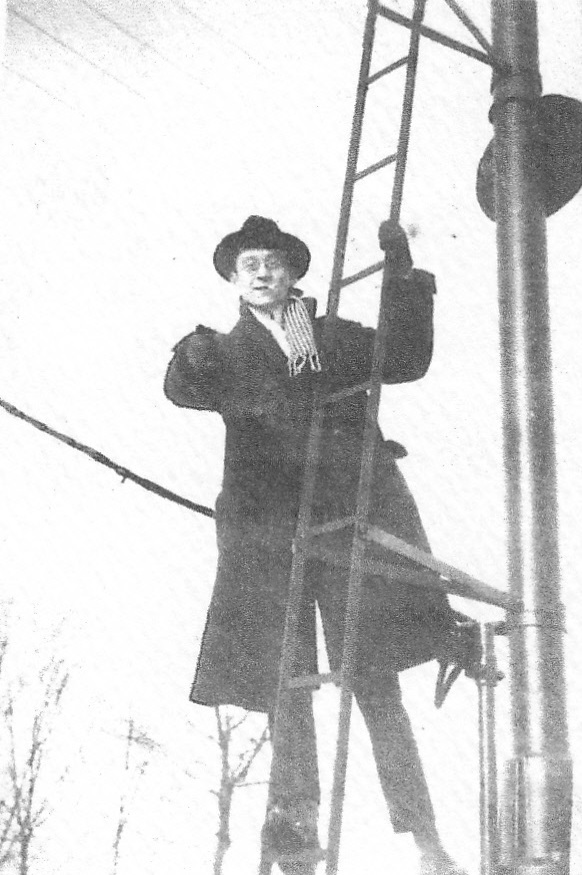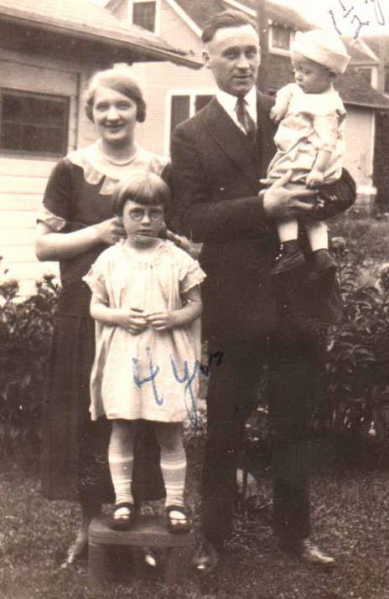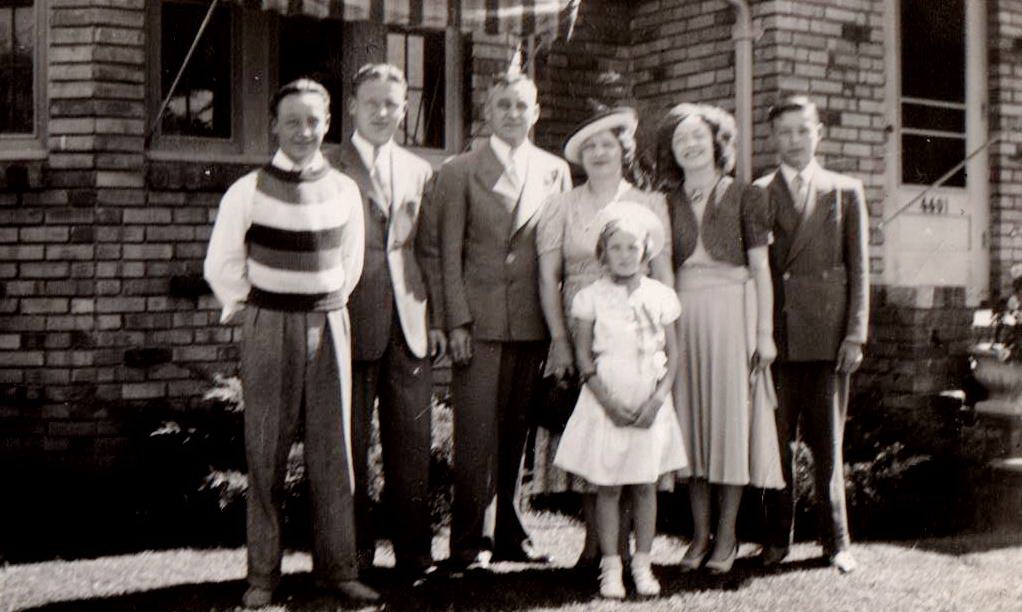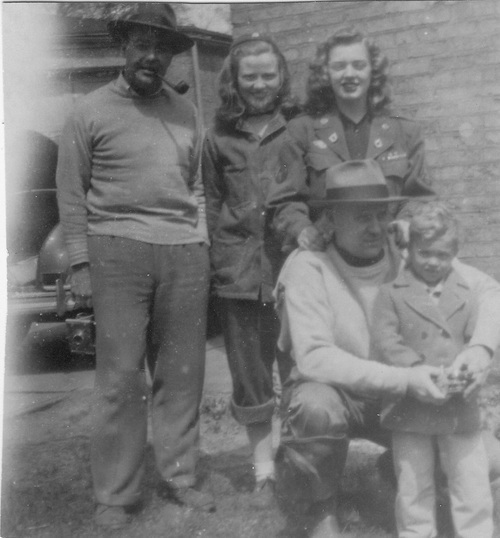His first few years were spent working as a telegrapher at the tiny train station in Cologne, MN, where he was born. His WWI draft registration lists that job and that he supported his widowed mother, Bertha. In the summer of 1917, he married my grandmother, Marcella Hund, six years his junior. On March 21, 1918, a month before their first child, Leo, was born, my Grampa enlisted in the Navy. Because he was a skilled telegrapher, he was sent to the the US Naval Radio School that was launched the year before in Cambridge, Ma , where it occupied Harvard campus buildings for classrooms. My grandfather, like many in his generation, did not "go to college", but he told me with characteristic twinkle in his blue eyes, that whenever anyone asked, he told them he was "a Harvard man". And so he was, graduating from radio school with a "yard long" graduation photo holding his Springfield '03 rifle to prove it.
World War One was winding down when Grampa finished service school, and he was discharged to home in early 1919 as a radioman second class, without joining a ship in the fleet.
, of telling those who inquired about his matriculation,
and, somewhat controversially, erected a temporary ba…
Those we love don't go away,
They walk beside us every day,
Unseen, unheard, but always near,
Still loved, still missed, and very dear.
So much has changed since you've been gone, through ups and downs our lives move on,
But as time rolls by one thing remains true,
We'll always have memories of you.
Military Information: RM2, US NAVY
His first few years were spent working as a telegrapher at the tiny train station in Cologne, MN, where he was born. His WWI draft registration lists that job and that he supported his widowed mother, Bertha. In the summer of 1917, he married my grandmother, Marcella Hund, six years his junior. On March 21, 1918, a month before their first child, Leo, was born, my Grampa enlisted in the Navy. Because he was a skilled telegrapher, he was sent to the the US Naval Radio School that was launched the year before in Cambridge, Ma , where it occupied Harvard campus buildings for classrooms. My grandfather, like many in his generation, did not "go to college", but he told me with characteristic twinkle in his blue eyes, that whenever anyone asked, he told them he was "a Harvard man". And so he was, graduating from radio school with a "yard long" graduation photo holding his Springfield '03 rifle to prove it.
World War One was winding down when Grampa finished service school, and he was discharged to home in early 1919 as a radioman second class, without joining a ship in the fleet.
, of telling those who inquired about his matriculation,
and, somewhat controversially, erected a temporary ba…
Those we love don't go away,
They walk beside us every day,
Unseen, unheard, but always near,
Still loved, still missed, and very dear.
So much has changed since you've been gone, through ups and downs our lives move on,
But as time rolls by one thing remains true,
We'll always have memories of you.
Military Information: RM2, US NAVY
Family Members
Sponsored by Ancestry
Advertisement
Explore more
Sponsored by Ancestry
Advertisement
















